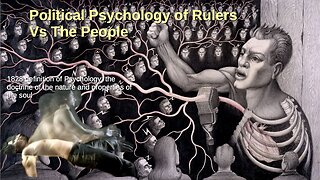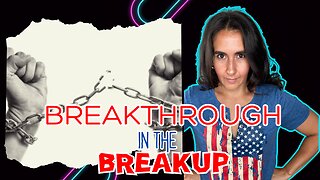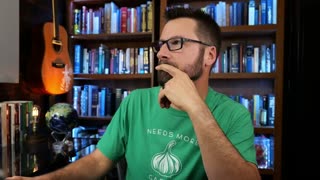Episode 33 - The Surprising Mind: What it’s adding
Time for a new season! It’s your surprising mind. Getting a handle on some of its quirks can really give you a head start on navigating life’s obstacles and continuing to grow.
Perspectives on the prodigal son
The parable of the prodigal son. Think about what you’ve thought and heard about it. Here’s the younger son, shockingly asking for his share of the estate before his father is dead. Then going away to the heathen that were not the people of God that the Jews sought to be. And then wasting all that money. Wasting it on immoral activities. Then coming back, dejected, just looking for something to eat. Then the father running out to greet him, welcoming him back. Throwing a party, even!
People from Western cultures, upon hearing that story and being asked to repeat it and reflect upon it will mostly focus on the son… the sin, the repentance, the return, and his generous reception. Or maybe they would focus on the father welcoming back the lost sheep.
People from certain other cultures, when asked to re-tell the story, will emphasize… the famine.
Did I mention the famine? Guess I forgot it. It’s just a plot device, I thought.
These other cultures know what famine is. It’s a terror. When famine struck the son in that foreign land, it made a big impression on them. The issue was: the son had hit rock bottom, he was lost.
First-century Jews, according to NT Wright, would hear the parable of the prodigal son and hear that the long-awaiting kingdom of God that so many Jewish people had hoped for and longed for would include… the gentiles.
The lens for the prodigal son parable
My unconscious mind interprets the prodigal son story according to the values and symbols that are familiar to me. Work hard, respect the family business, don’t waste your money on frivolity, don’t spend money on vices, take care of your finances and certainly don’t waste it all, have gratitude when your family treats you better than you deserve, and don’t be jealous of someone who’s getting some nice treatment. All that stuff.
I have a powerful lens that guides how I see scripture. And how I see those around me, events, myself, my experiences, and everything else.
That lens comes from biology, experiences, my understanding of how the world works, values, patterns of thought, habits, what I learned growing up, and what I’ve absorbed from my culture and my beliefs. All that is whirled up into a map of what the world is like and how it works. Visualize whirled peas.
What you believe
Each of us works to understand how the world and people around us operate. We have a map. Most of what we know and understand is likely to be more or less correct. Alas, it is also true for each of us that there are things that we believe about how the world works and about ourselves that are not true and are no longer serving us. It’s a universal truth because many of these beliefs are formed after only a little bit of experience at a very young age.
Since these beliefs pass into our map of how the world “is” we don’t question them. They condition everything that happens.
For example, if you were to believe that nobody has goodwill and they only help you because you are giving them something, then every interaction you have would be judged according to that belief. And when you had interactions that didn’t fit that belief, you would basically ignore them, because what you pay attention to, even literally what you SEE is conditioned by your beliefs. You would be pretty cynical.
Or, just to throw an extreme hypothetical out there, if you believed that all relationships are about POWER then you would judge them all in that light. And not see all the other values that are so very important to your relationships. You might become embittered and estranged from the world as a result. That’s an extreme example, right?
Our lens strongly conditions how we experience reality. It’s surprising. Our lens is not morally good or bad: it serves us. Even as it helps us navigate a complex universe so we can figure out what’s going on around us, it’s also limiting what we see and can do. It cuts in all directions.
The point is to realize when it’s controlling what’s happening to you. And to learn how to work with it, in cooperation. And to know it well enough to help it be renewed by the Spirit instead of holding onto an outdated view of who you are and how the universe works.
Stay tuned for more about the surprising mind!
Join our Self-Compassion Group starting November 2022
A great inner life includes a realistic and kind inner dialogue with ourselves. We can learn to replace the accusatory voice of our inner critic with a voice of truth and love that is consistent with God’s compassion for us, compassion that meets us, lifts us up, and makes us want to go forward!
Learn More:
Women:https://midlife.thmlcoaching.com/self-compassion-seeing-yourself-through-the-eyes-of-god
Men: https://midlife.thmlcoaching.com/self-compassion-toolsformen
"Self love is the basic form of love on which all others are founded and makes all others possible.... We are always engaged in somewhat repressing this truth, which strikes us as somehow unseemly"
Josef Pieper
Contact Info
Email or text us:
Text: The Catholic Midlife podcast: 612-208-9150.
Email us: TheCatholicMidlife@gmail.com
Facebook: https://www.facebook.com/groups/thecatholicmidlife
Instagram: https://www.instagram.com/thecatholicmidlife/
Website: https://thmlcoaching.com/podcast/
-
 46:33
46:33
CatholicReboot
9 months agoEpisode 1487: Do you use your mind or your brain?
130 -
 45:45
45:45
Samuel Adams Returns
1 year agoEpisode 398:
13 -
 28:35
28:35
Vanessa Carlson
8 months agoWhen Breaking up Might Be A Breakthrough! (Episode 12) 10/7/23
2351 -
 15:58
15:58
CatholicReboot
2 months agoEpisode 1969: The Agony in the Garden: "My Soul is Sorrowful Even Unto Death" - Part 2
117 -
 38:03
38:03
CatholicReboot
2 months ago $0.01 earnedEpisode 1952: Embracing the Mystery: Our Suffering in the Passion of Christ
158 -
 36:00
36:00
CatholicReboot
1 year agoEpisode 1004: The Reproaches of the Passion - Part 3
88 -
 47:22
47:22
CatholicReboot
2 months ago $0.09 earnedEpisode 1971: Embracing Faith in the Face of Turmoil
117 -
 2:10:05
2:10:05
HandinHandwithGodTv
1 year ago20 Questions with Pastor Mike (Episode 97)
73 -
 32:54
32:54
CatholicReboot
4 months agoEpisode 1829: Divine Will or Human Agency?
93 -
 1:36:55
1:36:55
HandinHandwithGodTv
6 months ago20 Questions with Mike Winger (Episode 110)
143